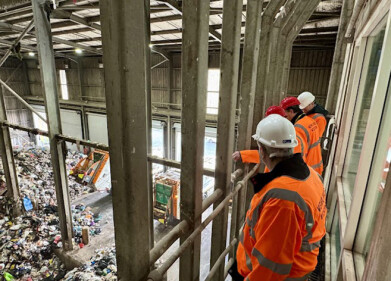Waste management
Do Biodegradable Plastics Actually Reduce Pollution?
Jan 27 2021
With plastic pollution an increasingly important priority in the minds of individuals and politicians alike, many companies have been rushing to convert to so-called “biodegradable” plastics, with the transition even a legal requirement in some countries. Biodegradable plastics are supposed to provide a more sustainable alternative to single-use plastics… but do they actually reduce pollution?
The short answer appears to be no. While biodegradable plastics can be broken down by living organisms, the process involved in doing so takes years, if not decades, to occur. In the meantime, the waste can still emit carbon into the atmosphere, contributing to the climate crisis, while the effect of exposure to airborne microplastics is still not fully understood. As such, biodegradable plastics are not a cure-all solution to the problem of plastic waste by any stretch of the imagination.
A Chinese case study
The Chinese authorities have banned the sale of single-use plastics from 2025 onwards. In anticipation of that upcoming piece of legislation, many companies in the country have pivoted towards a biodegradable version of the substance. According to research conducted by Greenpeace, 36 firms have planned or constructed new manufacturing facilities dedicated to biodegradable plastics in the last year.
That’s resulted in a huge 4.4 million-tonne increase in production capacity, up 800% from the year previous. Unfortunately, it doesn’t appear as though the nation is equipped to handle the degradation of those materials, meaning any gains made by the type of plastic involved are offset by an inability to process them.
Confusing terminology
That’s because despite the name, most biodegradable plastics must be treated at an industrial plant using high temperatures if they are to be adequately decomposed and disposed of in less than six months. Such a short timescale is a necessity, due to the fact that demand is continuing at breakneck pace; the Chinese e-commerce sector is projected to produce five million tonnes of biodegradable plastic waste per annum before the ban on single-use plastics comes in.
And herein lies the problem. The term “biodegradable” makes it seem as though this type of plastic comes with little or no harmful repercussions for the environment, when in fact it carries many of the same dangers as any other type of plastic. Overcoming this informational problem is crucial to altering people’s perspectives and bringing about a sea change in their habits regarding plastic waste.
A more sustainable solution
The ongoing COVID-19 crisis looks set to only exacerbate the issue, since one of the more undesirable environmental implications of coronavirus is the increase in the use of plastic face masks and gloves – and the resultant increase in plastic waste that these have prompted. Instead of switching to another type of plastic to get around the issue, a more futureproofed solution is required, according to Greenpeace plastics researcher, Dr Molly Zhongnan Jia.
“This 'biodegradables rush' has to stop. We need to take a cautious look at the effect and potential risks of mainstreaming these materials, and make sure we invest in solutions that actually reduce plastic waste,” explained Dr Jia. “Reusable packaging systems and a reduction in overall plastic use are much more promising strategies to keep plastic out of landfills and the environment.”
Events
Apr 08 2025 Targi Kielce, Poland
Apr 08 2025 Bahrain
Apr 10 2025 Beijing, China
Apr 10 2025 Beijing, China
Apr 15 2025 Moscow, Russia














